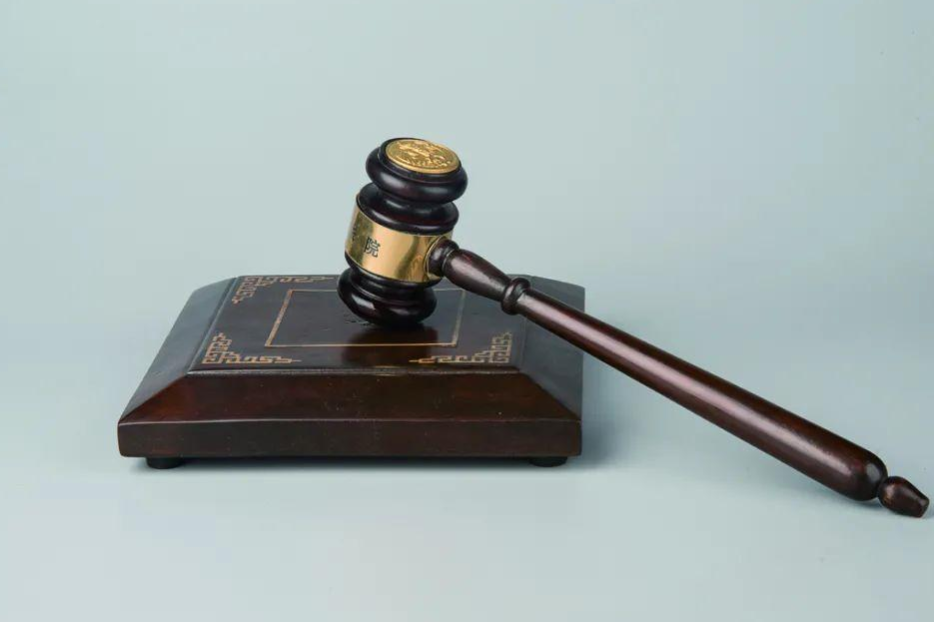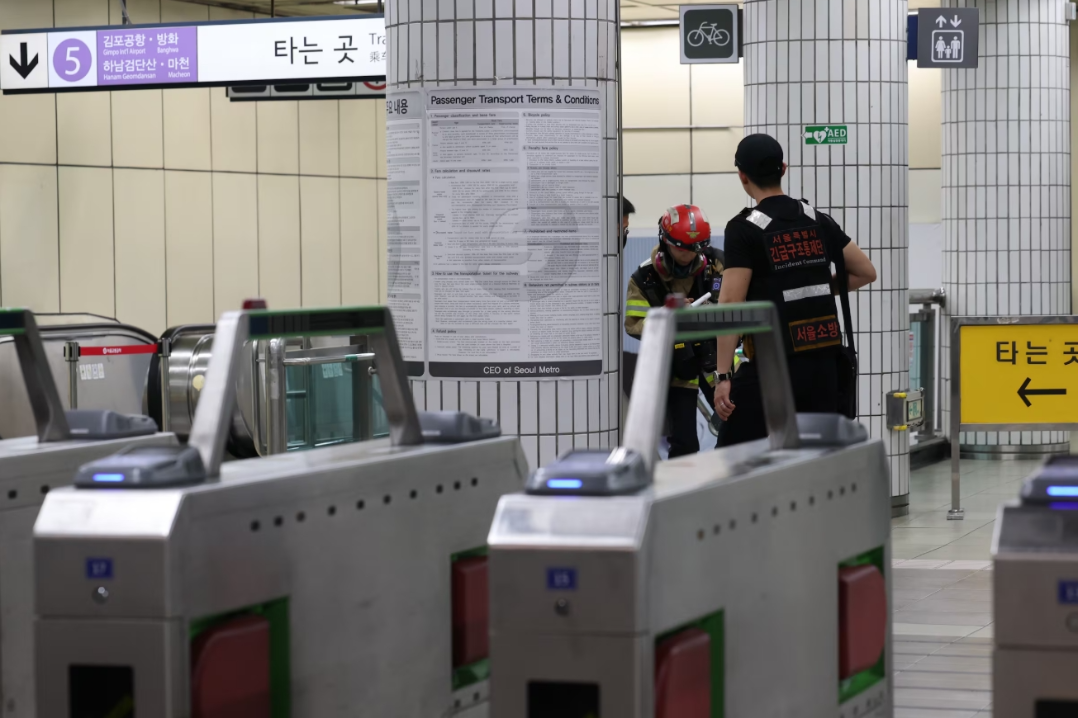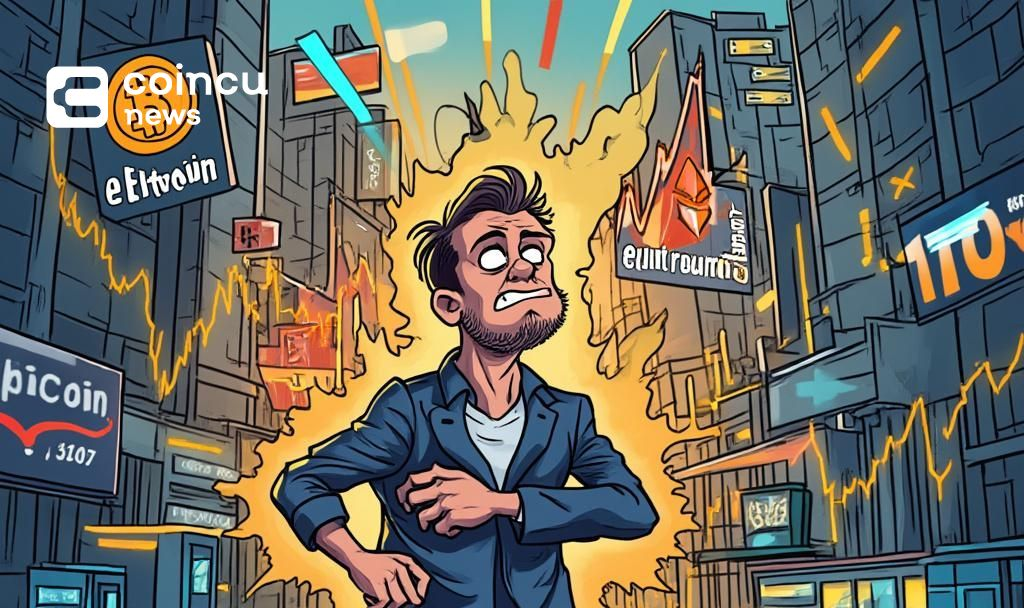SEC Drops Lawsuit Against Binance After Trump-Backed USD1 Stablecoin Launches On Crypto Exchange
The Securities and Exchange Commission dropped a lawsuit against Binance on Thursday, days after the crypto exchange began listing a stablecoin created by World Liberty Financial, one of President Donald Trump’s blockchain ventures.
President Donald Trump delivers remarks during the swearing-in ceremony for Securities and Exchange ... More Commission Chairman Paul Atkins at the White House on April 22. (Photo by Chip Somodevilla/Getty Images)
Getty ImagesTrump and his family control about 60% of World Liberty Financial through an LLC, and he is listed as both the decentralized finance platform’s chief crypto advocate and inspiration, according to its website.
On May 22, World Liberty Financial announced that its USD1 stablecoin, a cryptocurrency whose value is pegged to the U.S. dollar, started trading on Binance, the world’s largest crypto exchange.
Binance admitted in a November 2023 plea deal to anti-money laundering and sanctions violations, agreeing to pay $4 billion; founder Changpeng “CZ” Zhao also pleaded guilty, paid a $50 million fine and was sentenced to four months in prison.
In late April—a few weeks before USD1 began trading on Binance—Zhao applied for a pardon from Trump’s Justice Department, he said on a recent podcast.
On Thursday, the Securities and Exchange Commission voluntarily dismissed its lawsuit against Binance that accused it of failing to restrict high-net-worth individuals from the platform, misleading investors about trading controls and commingling funds that it routed to a third party (a judge had put the case on hold in February following a joint request by both parties).
Spokespeople for World Liberty Financial, Binance and the Trump Organization did not immediately respond to inquiries; a spokesperson for the White House declined to comment on the record; and the SEC declined to comment beyond the statement it put out announcing its decision.
“Binance turned a blind eye to its legal obligations in the pursuit of profit. Its willful failures allowed money to flow to terrorists, cybercriminals, and child abusers through its platform,” then-Treasury Secretary Janet Yellen said in a statement announcing the 2023 plea deal.
“I certainly wouldn’t mind one,” Zhao said, laughing, when asked about a pardon on the Farokh Radio podcast. “I got lawyers applying,” he said, adding that he only submitted an application after The Wall Street Journal reported that he had been seeking a pardon.
Trump can earn income from his businesses while in office through the Donald J. Trump Revocable Trust, the same structure he used during his first term. He is its sole donor and beneficiary, while Donald Trump Jr. serves as the trustee. The Trump Organization confirmed in an April filing in Britain that Trump retains control over his businesses. As president, Trump has pledged to make the United States the “crypto capital of the world,” aligning with his expanding investments in digital assets.
Decentralized finance (DeFi) platforms like World Liberty Financial let users trade, borrow and lend crypto without banks. Stablecoins—such as the USD1 token—are digital currencies pegged to a traditional asset, like the U.S. dollar. Their issuers, like Trump’s World Liberty Financial in the instance of USD1, typically profit from trading fees and interest earned on deposits.
There’s no evidence World Liberty Financial and Binance discussed the SEC’s lawsuit, the exchange’s 2023 plea agreement or Zhao’s hopes for a pardon. Binance, however, is not the only Trump crypto partner to have benefited personally from his administration. After Chinese blockchain entrepreneur Justin Sun invested $30 million in World Liberty Financial tokens following Trump’s election, the SEC asked a judge to pause its fraud case against him to “explore a potential resolution.”
Democratic senators on the Banking Committee, including Sen. Elizabeth Warren, D-Mass., have asked the Justice Department and White House for details about any communications they’ve had with Zhao regarding a pardon. The senators asked for a response by Wednesday but have not received one, according to a spokesperson. The Justice Department confirmed to Forbes receipt of the letter, but declined to comment further. The senators will revisit the issue when they return from recess next week. Meanwhile, if Trump does grant Zhao clemency, it should appear on the Justice Department’s website.
The Genius Act—a bill that aims to create a regulatory framework for stablecoins, like USD1—cleared a procedural hurdle in the Senate last week on a 66-32 vote. Critics, including Warren, say that passing the bill could see stablecoin usage spike, but without adequate safeguards and “heightening the possibility of a crypto collapse” that would require a taxpayer bailout. Senate Democrats introduced the End Crypto Corruption Act earlier this month, which would bar presidents and other officials from “issuing, endorsing or sponsoring crypto assets.”
Binance, which lists USD1, does not operate in the United States. Binance’s U.S. subsidiary, Binance.us, however, does not list the president’s stablecoin.
$2.15 billion—USD1’s market cap as of Thursday, making it the 49th most-popular stablecoin, according to Binance.
Binance is the second troubled crypto exchange to list USD1 this month. As previously reported by Forbes, Trump’s stablecoin also began trading on KuCoin, a Seychelles-based exchange that pleaded guilty in January to operating an unlicensed money-transmitting business. KuCoin agreed to pay nearly $300 million in penalties and exit the U.S. market for at least two years. A KuCoin spokesperson told Forbes the USD1 listing was “a standard operational decision based on market factors and independent due diligence.”
Forbes estimates Donald Trump is worth about $5 billion, with much of his wealth coming from his shares in Trump Media. Zhao, meanwhile, is worth an estimated $67.2 billion.
Further Reading
The 3 Easy New Ways Anyone Can Funnel Money Directly To Donald Trump’s Businesses (Forbes)
Trump Businesses Hauled In $317,000 From RNC In March—Even As Crypto Ventures Soar (Forbes)
Trump’s Sons Invest In AI Data Centers After He Touts Billions In Industry Expansion (Forbes)
Trump Media Executives Launch New SPAC Seeking $179 Million—And Target Crypto, Defense Sectors (Forbes)
How Truth Social And Crypto Helped Trump Double His Fortune In Just One Year (Forbes)
How Trump’s Bitcoin Policies Are Making The U.S. A Crypto Superpower (Forbes)
Trump’s Crypto Reserve Hit With Unexpected Backlash From Billionaire Allies (Forbes)










)